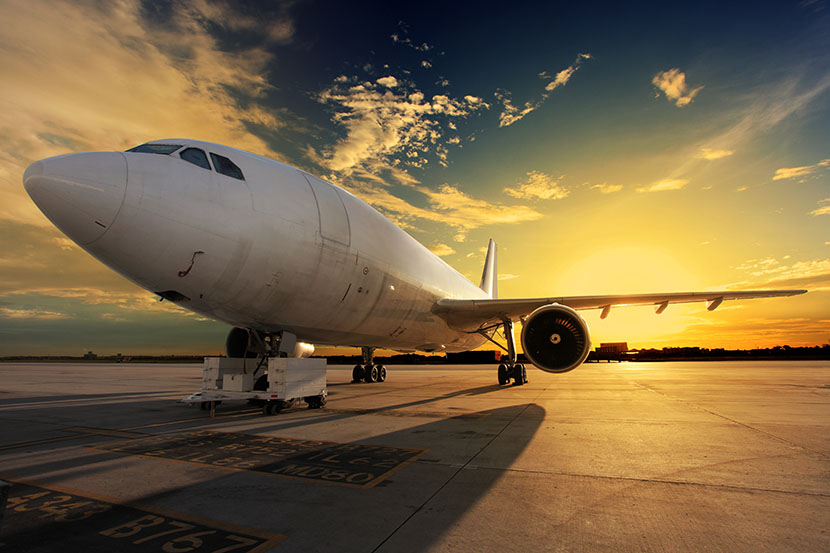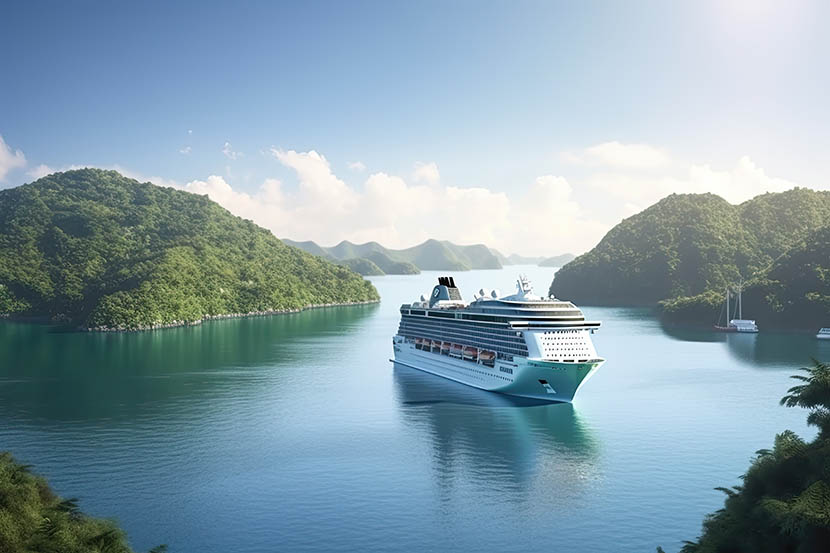Sunday, December 31, 2023

In 2023, the travel industry navigated a tumultuous yet transformative path. Gradual recovery post-pandemic saw increased travel, though sporadic COVID variants caused setbacks. Sustainable travel surged, tech-driven experiences boomed, and destinations adapted to evolving norms, fostering resilience and innovation amid ongoing global uncertainties.
Sustainable Aviation Fuel, a new alternative
The sharp rise in Sustainable Aviation Fuel (SAF) marks a pivotal leap in aviation technology, addressing environmental concerns. As demand intensifies, advancements in production methods and partnerships accelerate, offering a greener alternative to traditional jet fuels. Sustainable Aviation Fuel (SAF) reduces carbon emissions, mitigating aviation’s environmental impact. Industry-wide commitments drive innovation, pushing for widespread adoption and investment in sustainable practices. This surge in Sustainable Aviation Fuel (SAF) propels aviation toward a more eco-conscious future, fostering a pivotal shift towards carbon-neutral flight operations, aligning with global sustainability goals while revolutionizing aviation technology.

Cruise tourism revival in 2023
After a turbulent hiatus in pandemic years, cruise tourism emerges revitalized in the travel industry this year. Stringent safety measures, vaccination mandates, and innovative health protocols have restored traveler confidence. Enhanced sanitation practices and adaptable itineraries promise secure and flexible voyages. The industry’s resilience fosters a renaissance, with renewed enthusiasm for oceanic adventures. Cruise lines‘ commitment to guest safety redefines the travel experience, emphasizing well-being without compromising the allure of exploration. As passengers eagerly return to the seas, the revival of cruise tourism signals a hopeful resurgence, blending comfort, adventure, and a renewed appreciation for the magic of maritime travel post-pandemic.
Wildfire affecting travel, tourism and hospitality industry
Wildfires have cast a somber shadow over the travel, tourism, and hospitality industry, wreaking havoc on destinations globally. These disasters disrupt travel patterns, deter tourists, and inflict significant economic blows. Popular tourist spots face closures or limited access due to safety concerns, leading to cancellations and revenue loss for hotels, tour operators, and local businesses.

The environmental impact also alters landscapes, affecting scenic beauty and natural attractions crucial to tourism. Air quality concerns from smoke hinder travel plans, causing flight delays or rerouting, further impacting visitor numbers.
Communities reliant on tourism suffer, facing unemployment and financial strain. Rebuilding infrastructure and rejuvenating affected areas pose challenges, delaying the revival of once-thriving travel hubs.
Yet, amidst adversity, solidarity emerges. Travelers and industry players contribute to relief efforts, aiding affected regions in their recovery. Collaborative initiatives and sustainable practices gain momentum, emphasizing the need to protect these vulnerable areas while ensuring the continuity and resilience of the travel and hospitality sector.
Volcanoes in Indonesia and Iceland deepens tourism of these regions
Volcanoes in Indonesia and Iceland stand as awe-inspiring natural wonders, paradoxically both powerful and captivating, significantly deepening tourism in these regions. Indonesia boasts over 130 active volcanoes, including iconic sites like Mount Bromo and Mount Merapi. These volcanic landscapes offer thrilling trekking experiences and breathtaking vistas, drawing adventurers seeking adrenaline and nature enthusiasts fascinated by geological marvels.
Similarly, Iceland’s volcanic terrain, with gems like Eyjafjallajökull and Hekla, fuels tourism, attracting visitors eager to witness raw, untamed beauty. Volcanic hot springs like the Blue Lagoon embody relaxation amid dramatic landscapes, making it a magnet for travelers seeking rejuvenation.
The mystique surrounding volcanic activity, though potentially disruptive, paradoxically amplifies tourism interest. It sparks curiosity and draws explorers fascinated by the dynamic forces shaping Earth. Adventure seekers and scientists alike flock to these regions, turning adversity into an opportunity for discovery and adventure, bolstering tourism, and fostering a deeper appreciation for the volatile yet enchanting volcanic landscapes of Indonesia and Iceland.

Russia- Ukraine War and Israel-Hamas War effects tourism in Middle East and Central Asia
The Russia-Ukraine conflict and the Israel-Hamas clashes have reverberated across the Middle East and Central Asia, significantly impacting tourism in the region. In the wake of the Russia-Ukraine conflict, uncertainty and geopolitical tensions have dissuaded travelers from exploring destinations like Crimea and Eastern Ukraine. Concerns about safety, travel advisories, and geopolitical instability have led to a decline in tourist arrivals, affecting local economies reliant on tourism.
Likewise, the Israel-Hamas conflict has disrupted tourism in the Middle East. The intermittent flare-ups and security concerns have deterred visitors from areas like Gaza and Southern Israel. The conflict’s visibility in global media has created perceptions of instability, impacting tourism across the region. Travelers often opt for safer destinations, steering away from areas marked by conflict or political unrest.
These conflicts not only impede tourism directly in the affected regions but also cast a shadow of uncertainty over neighboring countries, impacting the broader tourism industry in Central Asia and the Middle East. Restoring confidence in safety and stability remains pivotal for revitalizing tourism, promoting peace, and fostering economic recovery across these geographically interconnected regions.

Visa-free Travel ascends tourism graph
Visa-free travel heralds a transformative era for the travel industry, igniting a surge in global tourism. Removing visa requirements streamlines travel logistics, encouraging spontaneity and ease of exploration. This accessibility fosters a boon for destinations, unlocking their potential to attract a broader spectrum of tourists, from casual travelers to business professionals, and boosting their economies.
Visa-free access promotes cultural exchange, fostering a deeper understanding between nations. It sparks curiosity, encouraging travelers to venture beyond their comfort zones and experience diverse cultures firsthand. As barriers diminish, tourism flourishes, leading to increased visitor numbers, hotel bookings, and local spending, benefiting various sectors within the industry.
This liberation from bureaucratic hurdles not only enriches travelers’ experiences but also enhances a destination’s global appeal. It fosters reciprocity and goodwill between nations, creating a positive ripple effect that transcends borders. Visa-free travel stands as a catalyst for the travel industry’s growth, fostering inclusivity and driving economic prosperity while nurturing a more interconnected world.
OceanGate accident affects travel in underwater exploration
The OceanGate accident has sent ripples through underwater exploration, impacting travel and research in deep-sea ventures. Safety concerns following the incident have led to reassessments of expedition protocols and equipment standards. This setback has temporarily slowed the momentum of deep-sea exploration, causing delays in planned missions and affecting the confidence of potential travelers and investors in underwater ventures. Despite this, the incident has sparked a renewed emphasis on safety measures, prompting the industry to recalibrate and prioritize stringent safety protocols, aiming to regain trust and resume underwater exploration with enhanced precautions.

Introduction of long haul airlines
The introduction of long-haul airlines marks a pivotal stride in aviation, revolutionizing travel by connecting distant corners of the globe. These carriers offer extended flight routes, bridging continents and making once-remote destinations accessible. Their arrival introduces competitive pricing, diverse amenities, and innovative services, enhancing passenger experiences on lengthy journeys. The expansion of long-haul networks not only fuels tourism but also facilitates trade and cultural exchange. By catering to global wanderlust with efficiency and comfort, these airlines redefine air travel, fostering a more interconnected world and catering to the evolving demands of modern travelers seeking far-flung adventures.
Saturday, December 30, 2023
Comments: